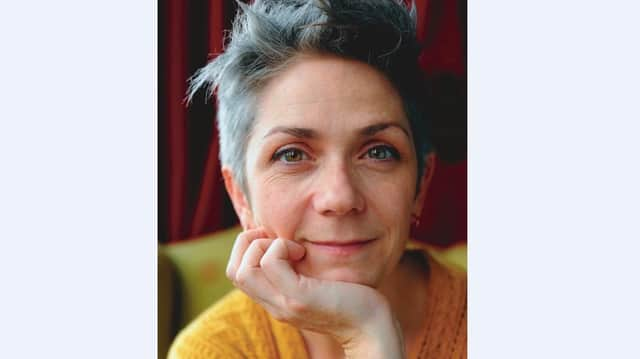Book review: The Less Dead, by Denise Mina


My colleague – my mentor, even - Allan Massie recently reviewed the new novel by Val McDermid, and said “we read crime fiction for enjoyment, comfort and reassurance”. Denise Mina’s new novel, The Less Dead, provides none of these whatsoever. It is, however, a very urgent and affecting piece, albeit that it sometimes feels like being given syrup of figs to purge the system.
It opens with Margo, a doctor, who is about to meet her birth family. Margo is privileged and knows she is privileged. At the Adoption Agency she meets her aunt who has a thing or two to tell her. Not only was her mother a sex worker, she was murdered at the age of 17, and Aunt Nikki claims she knows who committed the crime. She asks for Margo’s help in breaking confidentiality rules to access patient data in her vengeance quest, and Margo refuses. But then Margo is sent similar anonymous letters that her aunt has been receiving from someone who knows a lot about the murder of her mother.
Advertisement
Hide AdIt is always difficult reviewing crime fiction as there is so much that one cannot say, for fear of depriving the reader of the suspense of the reading process. It is sufficient to say that the solution is somewhat sfumato; there is a haziness which is integral to the book. Although there is a whiff of conspiracy at the outset, involving the police, the moral core comes later: one character says “They always talk about how victims don’t remember properly, don’t they? I bet the men who do those things push it right to the back of their minds. All the unsolved murders, the men who did them, they’re all out there, wandering about, having Christmas Days and living with themselves”.
Mina’s previous novel, The Long Drop, was a fictional work of non-fiction about the murderer Peter Manuel and – if I were a detective not a critic – it seems significant that this book features a true crime writer. I have often written about books having their guilty, unconscious secrets, but Mina turns this on its head. Of the ex-journalist’s work she says “the style is tabloid and mildly hysterical. Sentences never seem to want to end… There are a lot of men’s names and descriptions of them that mark none of them apart. It’s all very chummy and, to an outsider, quite boring”. She proceeds to do the opposite. The men seem either vapid or needy, the women are tough and tragic and made individual.
If The Long Drop was Mina in the style of Highsmith or Rendell, this is a far more hard-boiled affair. The descriptions of the lives and deaths of the sex workers are unsparing, and rightly so. If you flinch or wince, it might just mean you have a conscience. At one point, a character sets out the reasons to feel awkward, saying “D’you ever wonder about men? About men and sex? The dark side of it? What’s going on there? Animals and children, grabbing at people, violence and all that mad pornography stuff… I mean, what’s wrong with them?” That the questions are left unanswered is the answer.
Part of the book’s ingenuity is to raise the spectre of a Glasgow “Jack the Ripper” and then interrogate the whole idea of the lone monster. It does not glamorise the serial killer, it anonymises them, just as the letters sent to Margo and her family are unsigned. In Margo, Mina has created a character that allows her to investigate not sex workers, but class. Being a professional snob I would always look down on people who refer to things as “classy” and think them déclassé, so there was a chime with Margo’s ambiguous feelings about what she is feeling and what she thinks she ought to be feeling. As with other works by Mina, it’s the money that matters. A book that gives you a pang of guilt is no bad thing. When one characters says “this is a dying life” and another says and we get the title reference – “When we get killed they call us the “less dead”, like we were never even alive to begin with”, it made me think long and hard. Mina is also a wonderful writer of small details: a porcelain sculpture, an Ikea sofa, a particular tracksuit – Mina is sharp-eyed at how a detail can reveal so much with so little.
Mina can turn a phrase extremely well, but that is not the point of this book. It is, and I mean this as a compliment, utterly unsentimental. It refuses to stare away. In Margo there is a character who is a scientific sceptic, whose family might have claimed to be psychics as well as be sex workers, and yet she is both the avenging angel and the good Samaritan. She is a character whom I hope will appear in future books, since she is as complex as the world, and as confused by it.
Denise Mina, The Less Dead, Harvill Secker, £14.99
A message from the Editor:
Thank you for reading this story on our website. While I have your attention, I also have an important request to make of you.
Advertisement
Hide AdThe dramatic events of 2020 are having a major impact on many of our advertisers - and consequently the revenue we receive. We are now more reliant than ever on you taking out a digital subscription to support our journalism.
To subscribe to scotsman.com and enjoy unlimited access to Scottish news and information online and on our app, visit https://www.scotsman.com/subscriptions
Joy Yates
Editorial Director